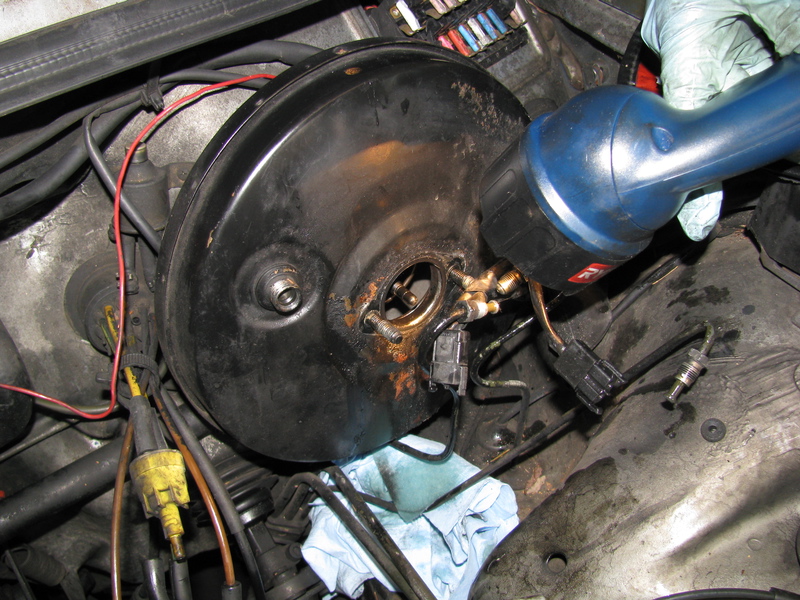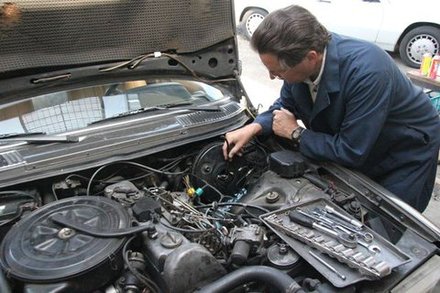On most Mercedes with a manual transmission the fluid for the clutch comes from the same reservoir as the brake fluid. If your clutch is leaking it can be hazardous to your ability to brake! Each time you check your engine oil take a quick look at the brake fluid reservoir. If you notice it has gone down since the last time you looked at it find the source of the leak immediately!
Problem & Solution
Common among these chassis:
Most clutch leaks occur at the master cylinder (under the dash) or at the slave cylinder (on the side of the transmission). Look for wetness around the shafts on both of these cylinders. When the internal seals fail fluid can leak out when the shaft enters the housing. Other leaks can occur at the hose that runs from the reservoir to the top of the master cylinder and the rubber flex hose that goes from the body to the transmission (under the car).
Brake fluid loss is generally the result of brake caliper piston seal failure. Look for wetness around any of your four brake calipers. Watch for fluid leaking out the bottom of the reservoir tank. There are rubber seals between the reservoir and the body of the brake master cylinder. When these age and get hard they will leak. IMPORTANT: If you are losing brake fluid and do not see any evidence of external leaks mentioned above, then suspect brake fluid is leaking into the brake booster. I have seen brake boosters with more than a cup of brake fluid inside. You will not see any leak but you may start having brake assist problems. If you suspect this, remove the master cylinder and get a small round mirror and flash light and look down to the bottom of the booster.

To check for this condition remove the master cylinder from the booster and use a short section of hose for a dip stick. Place the end down to the bottom of the booster to check for fluid. If you catch it early enough you can clean small amounts of brake fluid out by using rubbing alcohol. In cases where large amounts of brake fluid have sat in the booster for any length of time plan on replacing the booster. If it has not already gone bad, it will likely do so soon.
Don't try to save money by not replacing a suspect master cylinder. This is a major safety component. I have seen failed master cylinders lock up brake calipers, and I have seen the entire brake system (both front and rear brakes) fail when one chamber seal goes and the fluid leaks out of the reservoir for the other chamber.
